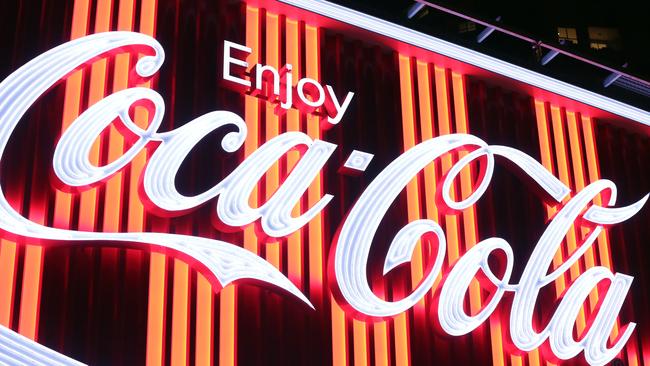Sugar tax: sweet taste of free choice
Why wouldn’t people keep paying a bit extra for their soft drinks and other sweet treats under a sugar tax regime?

Years ago my partner and I decided to take part in one of those depressing secular Lents that dot the calendar where you trade the booze for smugness and ground-down molars as you spend a month insisting through gritted teeth that no, really, a lemon, lime and bitters is just great, thanks.
Actually, that’s a bit of a caricature and, truth told, it wasn’t that bad. Although we pulled stumps on the third Saturday (something involving the trauma of our first Sydney property auction as prospective buyers necessitating a very long lunch, if I recall), neither were we shaking and scratching our skin for a G&T come cocktail hour the preceding weeks.
And while neither of us noticed any improvement in sleep, cognitive function or the like, we both peeled off, quickly, a small stack of weight — mostly because booze is just a tasty elixir of empty calories.
Which is a roundabout way of getting to our topic today, namely a sugar tax, which turned out to be the one thing beloved by the virtuous and the virtue-signalling that 2016 could not kill. Indeed, as the year closed there was a renewed push to bring such a thing into force in Australia, with the usual exhortations that the only way to deal with the country’s “obesity epidemic” is a big fat tax.
As it were.
Normally this debate lines up pretty squarely between those who think people need to take “personal responsibility” for what they eat and feed their family versus those who see us all as a dull-eyed ovine mass that would gorge itself stupid given half the chance.
The problem is, they’re both right. People do need the freedom to make choices good or bad — particularly in modern, micromanaged Australia, with its ever-tightening straitjacket of don’ts. But even the most ardent libertarian who keeps a well-thumbed copy of The Fountainhead next to the toot knows that personal responsibility is a canard, that rational, deferred gratification is tough, and that individuals do stupid things all the time and no amount of law or nudging will change that fact.
Which brings us back to alcohol, which in my and most other people’s experience is no good thing for the waistline.
Alcohol is already taxed extremely punitively in this country; we tend towards the top of the OECD league table when it comes to excise taxes and anyone who travels knows that a bottle of gin or vodka in Sydney or Melbourne costs about twice what it would in New York or Los Angeles.
Yet we still consume heaps of the stuff, more per capita (about 10 litres pure alcohol a year per person) than the citizen of the average developed nation (coming in at about 9 litres), according to the OECD.
Thus the question becomes, if people are still happy to pay get on the sauce despite the best efforts of governments to tax it into oblivion, why wouldn’t they keep paying a bit extra for their Cokes and energy drinks and other sweet treats under a sugar tax regime?
For most people, the extra impost wouldn’t be likely to make a difference, though there is evidence that in poorer communities where such measures have been introduced consumption has dropped — revealing a sort of middle-class tut-tutting behind all this that wouldn’t have been out of place in Victorian England.
Are many of us carrying around too much weight around the middle? Absolutely. Is much of this self-inflicted? No question.
Would adding, say, an extra 20c to a can of soft drink from the office vending machine cause people to cut down their consumption? Not likely, except for those on the tightest budgets.
It would be nice if the multiple-credentialed academics and experts who make a living pushing such ideas could use all their years of study and schooling to come up with something more creative to help people deal with this than just whacking yet another impost on choices of which they disapprove.
